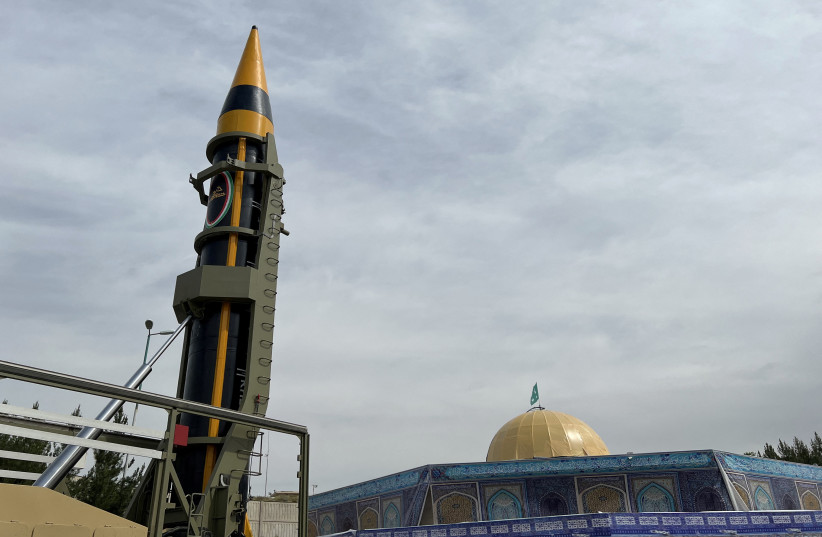The United States and France on Thursday accused Iran of violating a UN Security Council resolution endorsing the 2015 nuclear deal after it carried out a long-range ballistic missile test, which Paris said was worrying given "uninterrupted escalation" of Tehran's nuclear program.
Iran successfully test-launched a ballistic missile with a potential 2,000-km range on Thursday, state media said, the latest in ballistic missile tests and satellite launches.
Iran's development of ballistic missiles poses a serious threat to regional and international security, State Department spokesperson Matthew Miller told reporters on Thursday after Iran carried out a long-range ballistic missile test.
French foreign ministry spokesperson Anne-Claire Legendre told reporters at a daily briefing: "These activities are all the more worrying in the context of the continuing escalation of Iran's nuclear program."
UN Security Council's resolution on Iran's ballistic missiles
UN Security Council resolution 2231 calls on Iran not to conduct “any activity” related to ballistic missiles capable of delivering nuclear weapons, but the language is ambiguous, leaving it open to interpretation.
Western officials say that although the launches go against 2231, they are not a violation of the core nuclear agreement between Iran, Britain, China, France, Germany, Russia and the United States.

Western powers are particularly concerned because UN Security Council restrictions on missiles and related technologies last until October 2023 after which Iran is free to pursue its ballistic missile activity.
Legendre's reference to the escalation of Iran's nuclear program comes just 10 days before the International Atomic Energy Agency's 35-nation Board of Governors meets in Vienna.
"Iran's activities pose serious and increased non-proliferation risks without any credible civilian justification," she said.
Ahead of March's board meeting, the IAEA and Iran said they had agreed to make progress on various issues, including a long-stalled IAEA inquiry into uranium particles found at three undeclared sites in Iran.
They also agreed to re-install all extra monitoring equipment, such as surveillance cameras, at nuclear sites that was put in place under Iran's 2015 nuclear deal with major powers, but then removed last year as the deal unraveled following the US withdrawal in 2018.
Iran denies seeking nuclear weapons.
It is unclear how much progress there has been and whether Western powers will decide to push for a resolution ordering Iran to cooperate more.
"We expect Iran to respect its international obligations ... and carry out concrete and tangible progress before the Board of Governors meeting," Legendre said.
